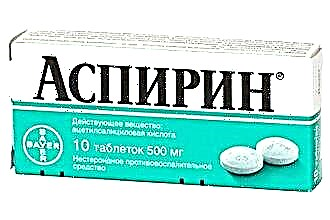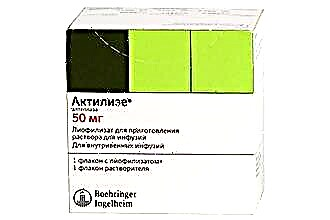Many patients are frivolous about a decrease in heart rate (HR), mistakenly believing that this condition does not pose a threat to health and does not require medical supervision. Let's discuss in detail the causes, types, symptoms and treatment of bradycardia. Let's clarify when a decrease in heart rate is a variant of the norm, and in what cases an ambulance is needed.
What it is
The term "bradycardia" means a decrease in the number of heart contractions by 15% in comparison with the age norm of a person. In a healthy man, the heart makes an average of 70 beats per minute. In a newborn, it works twice as fast.
Regulates the rhythm of the sinoauricular node of the accumulation of myocytes, innervated by the endings of the neurons of the autonomic nervous system. Scientists call him a pacemaker - a pacemaker. A wave of excitement arises in it, which, spreading along the pathways (atrioventricular node and bundle of His), triggers each contraction and stimulates the emergence of the next.

The heart rate depends on:
- states of the nervous system: when the sympathetic nerves are excited, the heart rate becomes more intense, wandering - it slows down;
- processes of excitation and inhibition in the cerebral cortex;
- endocrine system functions;
- blood concentrations of drugs, toxins, calcium, potassium and some other substances.
Sinus node cells suffer from arterial hypertension, increased pressure in the pulmonary circulation, cardiomyopathy, defects, angina pectoris and inflammatory processes of the myocardium. A slowdown in heart rate can be caused by degenerative changes in the sinus node, as well as damage to the pathways, which disrupts the course of the impulse to the ventricles of the heart.
The International Classification of Diseases of the 10th revision encodes a slow heartbeat with the code R00.1, referring it to unspecified symptoms and abnormalities. If bradycardia is a consequence of sick sinus syndrome, ICD-10 recommends using the code I 49.5, in case of conduction disorders (blockade) - I 44 - I 45. Arrhythmias in the neonatal period are coded P 29.1.
Causes of bradycardia
One patient asked me a question: "How is it that the doctors say that my heart is absolutely healthy, but I suffer from bradycardia." The causes of this symptom complex are divided into those caused by a disease of the cardiovascular system, and extracardiac (of another origin).
Experts divide bradycardia by etiology into:
- Neurogenic, which is also called functional or vagal. It is caused by irritation of the vagus nerve with neuroses, intracranial hypertension, subarachnoid hemorrhage, renal or hepatic colic, gastric ulcer, acute glomerulonephritis.
- Endocrine... The change in heart rate is due to the ability of thyroid hormones to reduce the effect of the sympathetic nervous system on the heart and increase the importance of the parasympathetic division. A decrease in the production of aldosterone (mineralocorticoid) is the cause of excessive excretion of water and sodium in the urine, which leads to dehydration and a decrease in blood pressure. The concentration of potassium in the blood increases, causing bradycardia.
- Toxic... This etiology can be both endogenous (intoxication with uremia, hyperkalemia, starvation) and exogenous (infection, lead poisoning, nicotine).
- Medication... When taking some medications, a side effect occurs in the form of a decrease in heart rate.
- Myogenic - organic bradyarrhythmia caused by direct damage to the sinus node in cardiac diseases.
- Constitutional and familycaused by genetic inheritance of the predominance of vagus nerve tone, which leads to persistent bradycardia.
There is another reason for bradycardia, which cardiologists consider as a normal variant. If you are an athlete, then your resting heart rate will most likely not exceed 50-60 beats per minute. This is due to a different level of neurovegetative regulation of cardiac activity in people experiencing excessive physical exertion. Read more about bradycardia in athletes in the article at the link.
Bradyarrhythmia, detected in women during pregnancy, requires special attention. In some expectant mothers, the heart thus adapts to a new position. But sometimes a decrease in heart rate is a sign of pathology, so if you are expecting a baby, even an insignificant tendency to decrease heart rate is a reason for an immediate visit to a doctor.
Kinds
Cardiologists distinguish between an acute form of bradycardia - it can be observed in acute coronary syndrome, poisoning, some infectious diseases, as well as chronic, caused by ischemic or hypertensive heart disease, pathology of the endocrine system, prolonged intoxication.
From a clinical point of view, bradycardia can be:
- absolute - constant;
- relative - observed only in certain conditions, for example, during hypothermia or at rest in trained people.
Depending on the severity:
- easy - a decrease in the number of strokes from the age norm by 10 per minute;
- moderate - by 20.
- strongly pronounced - by 30 or more.
One should not think that a small percentage of heart rate reduction is tantamount to the concept of "physiological bradycardia". Sometimes a slight decrease in heart rate may be the "first bell" of a serious pathology, so you should always determine the cause of your arrhythmia.
Symptoms and Signs
There is no specific sign of bradycardia. In the acute form, sudden dizziness, impaired consciousness, speech disorder such as "swallowing" words, fainting, syncope are observed. Such conditions differ from seizures of neurological etiology in the absence of aura and seizures.
A chronic decrease in the frequency of heart beats can manifest itself as general weakness, excessive fatigue, decreased memory and attention, irritability, insomnia, shortness of breath with moderate physical exertion. If you suffer from hypertension or angina pectoris, bradycardia can significantly worsen the course of the disease.
It should be remembered that chronic bradycardia can lead to persistent hypertension and circulatory failure. If your heart works slowly, all internal organs do not receive the required amount of oxygen, but most of all hypoxia is dangerous for the brain.
Diagnostics
I often meet a latent (latent) form of bradyarrhythmia, when a person feels great, and a slow heart rate is revealed during a preventive examination. More often, bradycardia can be assumed on the basis of the patient's complaints.
According to the Clinical Recommendations of the N.N. A.N. Bakuleva of the Ministry of Health of the Russian Federation, it is desirable for the patient to undergo the following types of examination:
- Electrocardiography - it will clarify the cause of the changes (sick sinus syndrome, blockade, impaired repolarization of the ventricles), identify concomitant types of arrhythmias.
- Holter monitoring - if the patient has a relative form, then a single ECG will not always confirm the presence of pathology, therefore, it is necessary to conduct an examination for a long time - within a day, and sometimes more. The patient lives as usual, and a special device records the ECG.

- Performing functional tests (with physical exertion, massage of the carotid sinus, passive long-term orthostatic) helps to clarify the type of bradycardia.
- Echocardiographic examination will make it possible to judge the anatomical changes in the heart, as well as the functional state of the myocardium.
The scope of examinations is chosen by the attending physician, depending on the age of the person, the presence of concomitant diseases. You may additionally need to be referred for chest x-ray, transesophageal electrophysiological examination of the cardiac pathways, consultation of doctors of other specialties.
It is important for us not only to diagnose the presence of this condition, but also to clarify the localization of the violation of automatism or conduction, and also to determine the cause - the underlying disease that caused the slowing down of the heart.
Treatment
Modern science has not come up with a universal tablet to speed up the heart rate. The doctor selects the therapy strictly individually. If you have a physiological decrease in heart rate, subjective manifestations are absent, and the heart rate is reduced by 10 - 15 per minute, it is likely that you will not need medication.
Treatment goals:
- Elimination of bradycardia and its clinical manifestations.
- Correction of other possible concomitant arrhythmias.
- Prevention of complications and the subsequent occurrence of bradycardia.
Sometimes it is enough to treat the underlying disease - for example, in hypothyroidism, the heart rate is normalized with adequate intake of thyroid hormones. If bradycardia is caused by medication, it is necessary to cancel the drug or adjust its dosage.
An acute attack of bradycardia can overtake the patient suddenly. Timely first aid provided will save a person's life.
The main thing is not to get confused and remember that it is necessary to increase the blood flow to the patient's brain. You can read more about urgent measures in case of a sharp drop in heart rate here.
Medicines
The table shows a list of medicines used for bradycardia of various origins:
| Cause of bradycardia | Atropine | Isoprenaline | Adrenalin | Dopamine | Theophylline | Amino phylline | Levo-thyroxine | Lithironin | Anti-biotics | Glucagon | Digoxin-specific antibodies | Calcium chloride or gluconate |
| Sick sinus syndrome | + | + | + | + | + | + | ||||||
Atrioventricular block | + | + | ||||||||||
Hypothyroidism | + | + | ||||||||||
Lyme disease | + | |||||||||||
| Toxic effect | ||||||||||||
| Beta blockers | + | + | + | |||||||||
| Digoxin | + | |||||||||||
| Calcium channel blockers | + | + |
Sometimes drug treatment does not bring the desired effect. In such cases, the question of the implantation of a pacemaker is decided.
The American Cardiovascular Association in its 2015 guidelines draws the attention of doctors to the fact that bradycardia treatment begins with an assessment of the basic vital parameters (respiration, blood pressure, oxygenation) and their correction.
Folk remedies
It is often necessary to warn "traditional medicine lovers" about the dangers of herbal medicine. Medicinal plants have not only indications, but also unwanted side effects. Moreover, it is almost impossible to find the exact dosage of the active ingredient in a decoction or tea. And most importantly: the effectiveness of the use of "grandmother's" recipes has not been proven by modern science.
If you like to supplement the treatment prescribed by your doctor with non-traditional recipes, check out the list of the most popular and popular ones here.



